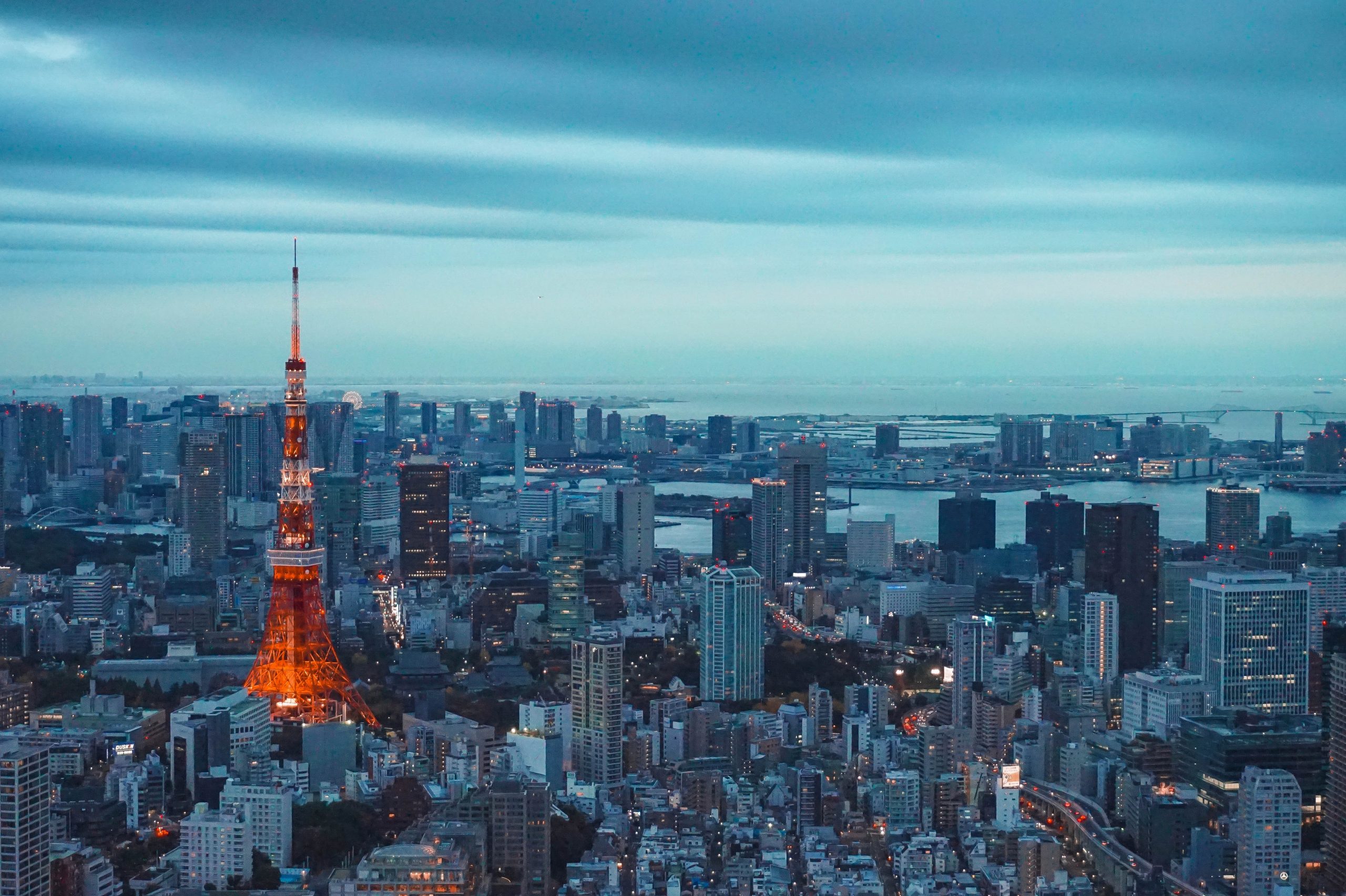This article is part of the Crunchbase Community Contributor Series. The author is an expert in their field and a Crunchbase user. We are honored to feature and promote their contribution on the Crunchbase blog.
Please note that the author is not employed by Crunchbase and the opinions expressed in this article do not necessarily reflect official views or opinions of Crunchbase, Inc.
It goes with the saying of “Zipangu – the Land of Gold” in The Travels of Marco Polo. It is difficult to understand the startup ecosystem in Japan. This article focuses on the third-largest GDP country in the world to understand more about Japanese startups, the investing opportunities, and the differences by region, mainly focusing on four areas: Tokyo, Chubu, Kansai and Fukuoka.
*About the startups in this article: The startups were selected by the local consortium and accelerators in charge of support programs. They are not the only ones that represent each region.
A ripe opportunity for startups
What are your perceptions of Japan? Delicious food, cleanliness and safety? All true, but overall, Japan is a “super-aged” nation, meaning more than 20 percent of its population is older than 65 years old. The total population stood at 126 million in 2019, but by the year 2036, one-third of the population will be over 65.
Throughout the COVID-19 crisis, the unemployment rate remained at 2.9 percent, very low relative to other countries. With the country’s large percentage of older residents, digital transformation is critical for the future of Japan. It is an “innovate or die” situation, making the environment ripe for startups.
A Japanese startup that you may know is the P2P online shopping app Mercari, which went public in 2018. You may not have heard of many unicorns from Japan, but many startups with the potential to become unicorns exist, and the government is eager to increase awareness of global Japanese startups.
Unicorns in Japan
- Preferred Networks: Engaged in research and practical application of machine learning and other technologies ($3.28 billion)
- Clean Planet: Researching the practical application of new hydrogen energy ($1.19 billion)
- SmartNews: News app ($1.14 billion)
- TBM: Development of LIMEX, a new material that can replace paper and plastic ($1.14 billion)
- Spiber: Development of biomaterials ($1.05 billion)
- ELEMENTS: Provides financial services related to cryptocurrency trading ($1.02 billion)
- Triple One: Develops semiconductor system “KAMIKAZE” ($973 million)
Japanese startup funding from VCs is also small compared to other countries, with total funding of around $3.35 billion (364 billion yen) in 2020. This means there is still a huge potential for venture capitalists to enter this ecosystem, which is why local governments in all regions are focusing on fostering startups.
Tokyo, the Galapagos Capital
Tokyo, one of the world’s largest cities, sometimes called “the city that never sleeps,” has a population of 13.95 million with a GDP of 108.2 trillion yen (FY 2018), exceeding the GDP of the Netherlands. Tokyo has approximately 3,000 large corporations with capital of 1 billion yen or more, and is home to nearly half of all of the companies in Japan.
As the international business center of Japan, Tokyo is also home to 76 percent of the foreign-affiliated companies in the country, with over 2,400 foreign companies, making it second in the world in cities with the most Fortune Global 500 companies. With this concentration of resources, the Tokyo metropolitan government, together with universities, private businesses, VCs, etc., established the “Startup Ecosystem Tokyo Consortium,” on Jan. 22, 2020. This platform enables startups to collaborate with enterprises and the government. It also has regulatory sandboxes in some areas, including Shibuya, Nishi-Shinjuku, Minato and Marunouchi.
Some of the startups the consortium believes will contribute to overcoming the hurdle of digital transformation include:
- obniz, a cloud-based IoT system providing real-time and bidirectional access between devices and their cloud database. They have patents for this firmware-less technology, which enables anyone to easily create an IoT device.
- Willbox contributes to the growth of shippers and international logistics through a SaaS platform.
Additionally, the top 30 percent of Japan’s best universities are in Tokyo, including the University of Tokyo, Keio University and Waseda University. The following are some university-born, deep-tech startups:
- BionicM provides a high-functional robotic prosthetic leg that provides motion assistance and natural movement which help amputees’ mobility.
- Restore Vision is developing a visual restoration gene therapy for retinitis pigmentosa.
- WARPSPACE aims to deploy relay satellites for the launch of its “WarpHub InterSat,” the world’s first optical telecommunications infrastructure, by the end of 2022.
Tokyo is also trying to strengthen international competitiveness by creating and growing startups to achieve sustainable growth of the economy, and is aiming to create 20 unicorn startups (the number of unicorns was three in 2019). The local government is also keen on solving governmental problems with startups aiming for at least 50 projects to progress.
Another goal for Tokyo is diversity. Not only with the diverse functions of each hub city in the Tokyo Metropolitan Area, but by involving foreign companies as well as foreign workers. The goal is to double the number of foreign workers to 35,000 in 2024 and attract 1,500 more companies in the same year. The region will expand its alignment to surrounding areas as “Greater Tokyo” and will cooperate with the national government and overseas ecosystem hub cities to strengthen the ecosystem in Tokyo.
Center of Japan, the center of manufacturing
Nagoya, Aichi and the Chubu (meaning “Center” in Japanese) area have been the site of Japan’s prosperity for manufacturing in the automobile industry. The TOYOTA empire is in this area, making it one of the wealthiest, although the number of startups is lower than in other areas. However, by taking advantage of the well-established technological hub and the employee talent of the world-class manufacturer, these cities are rapidly growing the startup ecosystem, especially in deep-tech and logistics categories.
The Chubu area has two government-led consortiums: Aichi-Nagoya Startup Consortium and Manufacturing Startup Hub in Hamamatsu. Both have partnered with deep-tech startups that joined forces with the local government, manufacturers, first-class research institutes, and universities, which they believe is the key to solving social issues.
Aichi-Nagoya Consortium aims to educate 10,000 individuals in entrepreneurship training and promote 300 startups in the Chubu region, including 200 from Aichi prefecture. They aim to have 10 high-growth startups with over $90 million (10 billion yen) annual sales in five years. Startups representing the Chubu area include:
- LOZI is taking supply chain management to the next generation with advanced visualization and automation technologies.
- U-MaP, a Nagoya University-raised startup, is working to solve the “thermal problems of electronic devices” that cannot be solved with conventional materials.
- iCorNet, a medical device venture from Nagoya University, develops a cardiac support net for heart failure and lethal arrhythmia.
- GRA&GREEN, also founded based on research and intellectual properties of Nagoya University, offers a gene-editing delivery system to create next-generation food and agriculture.
Hamamatsu’s Manufacturing Startup Hub focuses on holding events for the local enterprises to collaborate with startups. Its goal is to hold 300 events per year, which is triple the current number. Though still in the early growth period, they are aiming to bear 30 startups per year from the population of 800,000 in the Shizuoka area. Some of the emerging startups in Hamamatsu are:
- ANSeeN, originating from Shizuoka University, upgrades X-ray imaging with its sensor to implement embedded electronics, for example in cameras or LiDAR in self-driving systems.
- SPLYZA provides video analysis tools for amateur sports which enables all players and coaches to use the video to share reflections, discussions and analysis.
As Hamamatsu is only 30 minutes from Tokyo on a bullet train, this also will be an interesting innovative region for manufacturing-related startups in Japan.
In Part 2 of this series, we’ll head west to the Biology- and Art-oriented areas of Japan. Stay tuned. Find more information on each area here.
Article produced by: Japan Cabinet Office
Written and edited by: for Startups, Inc. & indigo, Inc.
Cover photo by: Louie Martinez on Unsplash




